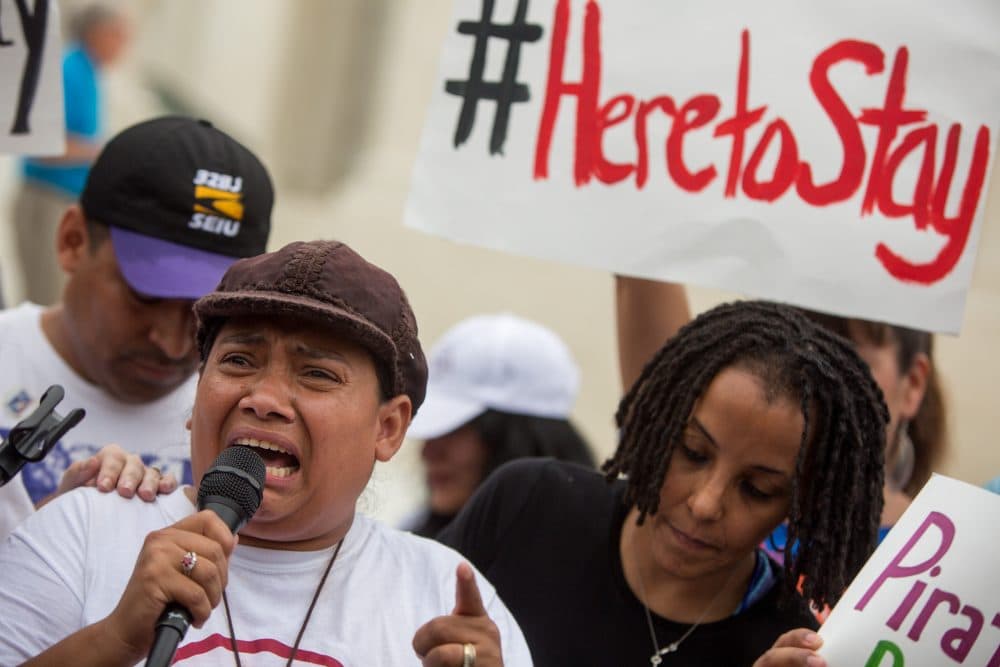Advertisement
Supreme Court Upholds Affirmative Action, Rejects Obama Immigration Moves
Resume
NPR's Ron Elving joins Here & Now's Robin Young to provide analysis of what happened in the Supreme Court on Thursday.
Interview Highlights
On Obama’s plan that was blocked:
You remember the Dreamers plan from a few years ago allowing people who had been brought to this country as children to obtain legal status and stay in the country and move forward. This was extending this to a wider circle of family members and people who are in this country illegally but who have family members who are here legally and who have been living, as the president says, "in the shadows." It doesn't give them permanent status, but it defers the action on their cases until further legislation may come along to rationalize our current immigration legal picture.
On the implications of the decision:
It means that they are subject to deportation and it means that they continue to have the anxiety of that situation and status going forward for an indefinite period of time, that's what the president was saying he found regrettable. It's why he acted when the House of Representatives refused to act on the immigration reform that had been passed by the Senate also just a few years ago. That was in 2013 and the House just did not take up the bill at all and has not taken up any kind of a comprehensive immigration plan.
So the President in frustration issues these executive orders in the manner that I’ve decried. That's the sort of political background of it. It was challenged in court, a federal judge down in Texas put it all on hold, he was upheld by a circuit court of appeal in New Orleans that handles the Texas cases, then it when to the Supreme Court, more or less on a kind of expedited basis, but it has not been decided, let us make it very clear, what this court's tie at four to four has done is it has it has said that nothing can change until another Supreme Court justice can be added and a more definitive precedent setting decision can be made by that new court.
On the history behind the Fisher vs. University of Texas at Austin decision:
Well Texas has a system they call a top 10 percent system where the top 10 percent of the graduates of every high school in the state are eligible for the University of Texas and as a result, they get a certain amount of diversity just from the diversity of the various high schools around the state. But, they have an additional program of affirmative action in which they can take race into consideration in admitting students beyond that 10 percent plan. That has been the focus on the controversy. Judge Alito, Samuel Alito, today wrote a 50 page dissent from the decision saying that he felt that that disadvantaged people who maybe came from an impoverished background, but were not members of a racial minority.
On the House Democrats sit-in:
This is really an unusual situation, if not perhaps a historic one, an unprecedented one. House Democrats in their frustration have decided that if the House Republican leadership will not schedule any kind of vote on a gun bill, either the measures that were voted on in the Senate or some other gun control measure, that they are just going to sit down and demand it… The speeches that are being made by many of these members recall much of the spirit of the Civil Rights Movement and the idea that peaceful protest and confrontation. Basically, a mass resistance and, if you will, civil disobedience even to the rules of the House of which these members are sworn members, so it is an unusual situation.
Guest
Ron Elving, NPR senior editor and correspondent. He tweets @NPRrelving.
This segment aired on June 23, 2016.